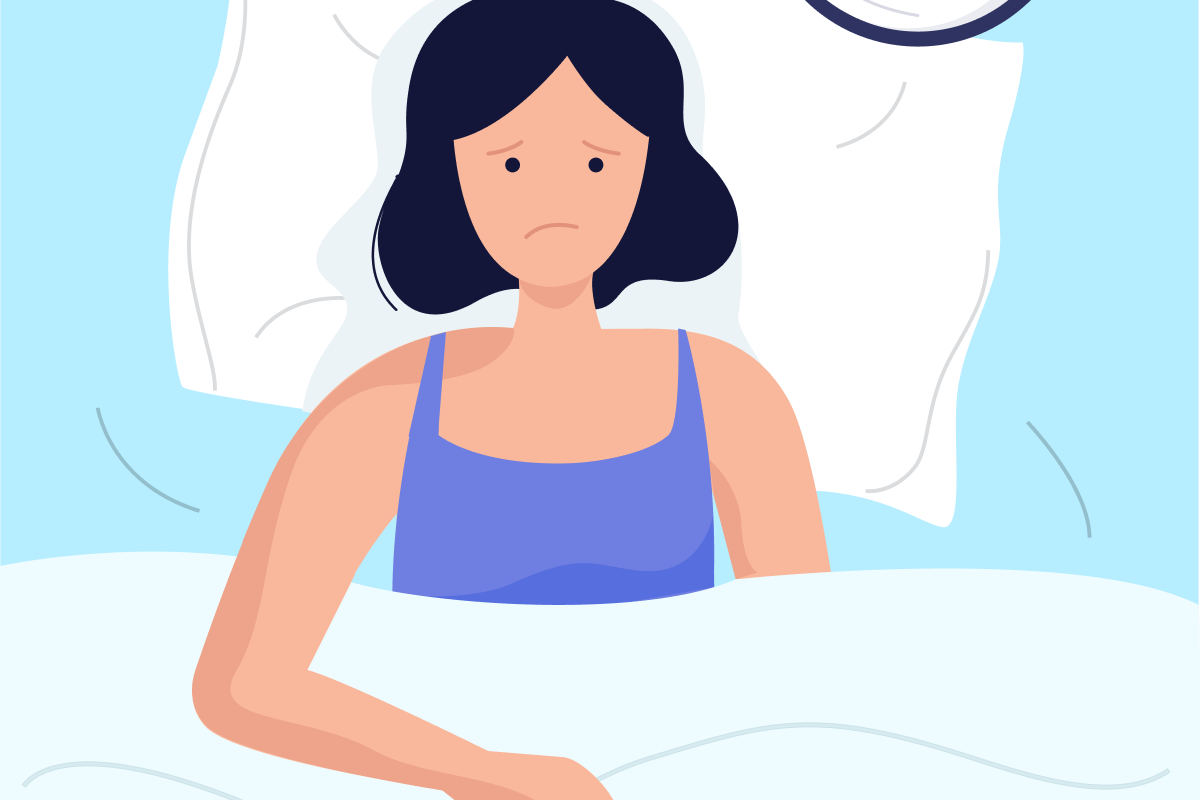In today’s fast-paced world, where the demands of work, social life, and personal ambitions often seem unrelenting, sleep deprivation has become an increasingly common problem. It’s a silent epidemic that affects millions of people worldwide, leading to a range of health issues, reduced productivity, and an overall decrease in the quality of life.
In this blog post, we’ll dive into the various causes of sleep deprivation, shedding light on why so many individuals struggle to get the restorative sleep they need.
1. Work-Related Stress
One of the leading causes of sleep deprivation is work-related stress. As the boundary between work and personal life becomes increasingly blurred, people find it challenging to switch off from the pressures of their jobs.
The constant need to stay connected, meet deadlines, and excel in their careers often results in poor sleep. Worries about job performance, job security, or upcoming tasks can lead to racing thoughts and anxiety, making it difficult to fall asleep or stay asleep.
2. Insomnia
Insomnia is a condition characterized by persistent difficulty falling asleep or staying asleep. It can be caused by a variety of factors, including stress, anxiety, depression, and even medical conditions. For those who suffer from insomnia, the nightly struggle to achieve restful sleep can result in chronic sleep deprivation, which can take a toll on their physical and mental health.
3. Medical Conditions
Certain medical conditions can interfere with sleep patterns and contribute to sleep deprivation. Conditions like sleep apnea, which causes interrupted breathing during sleep, or chronic pain, can make it challenging to get the recommended seven to nine hours of sleep each night. Restless leg syndrome is another condition that can lead to sleep disturbances and daytime fatigue.
4. Caffeine and Stimulants
Many people rely on caffeine and other stimulants to stay awake and alert during the day. While these substances can provide a temporary energy boost, consuming them too close to bedtime can have a detrimental effect on sleep. Caffeine, in particular, can disrupt the sleep cycle and make it difficult to fall asleep, leading to sleep deprivation.
5. Alcohol
Alcohol is often seen as a relaxant and sleep aid, but it can actually have a negative impact on sleep quality. While it may help individuals fall asleep more quickly, it can disrupt the later stages of the sleep cycle, leading to fragmented and poor-quality sleep. This can leave individuals feeling groggy and fatigued, despite spending a significant amount of time in bed.
6. Excessive Screen Time
In today’s digital age, excessive screen time is a common cause of sleep deprivation. The blue light emitted by smartphones, tablets, and computers can interfere with the body’s production of melatonin, a hormone that regulates the sleep-wake cycle. This can make it difficult to fall asleep and stay asleep, particularly if you use electronic devices right before bedtime.
7. Environmental Factors
Your sleep surroundings are a key factor in sleep quality. Noisy, well-lit, or uncomfortable sleep environments can hinder restful sleep. It’s crucial to establish a sleep-friendly setting that’s quiet, dark, and cozy for improved sleep. For those in Utah seeking to enhance their sleep space, a visit to a mattress store may be a great idea.
8. Shift Work
For those who work irregular or overnight shifts, maintaining a regular sleep pattern can be particularly challenging. Shift work disrupts the body’s natural circadian rhythm, making it difficult to adjust to a new sleep schedule. This can lead to chronic sleep deprivation and an increased risk of health problems.
9. Emotional Distress
Emotional distress, such as anxiety, depression, and other mental health issues, can cause sleep disturbances. Stress and worry can lead to racing thoughts at night, making it difficult to relax and fall asleep. Emotional distress not only affects the ability to fall asleep but can also result in frequent awakenings during the night.
10. Poor Sleep Hygiene
Finally, poor sleep hygiene is a significant contributor to sleep deprivation. Bad sleep habits, such as irregular sleep schedules, erratic meal times, and a lack of a bedtime routine, can make it difficult to establish a consistent sleep pattern. Over time, these habits can lead to chronic sleep deprivation.
Conclusion
Sleep deprivation is a widespread problem that affects individuals from all walks of life. The causes of sleep deprivation are diverse and often interconnected. Recognizing the factors contributing to your sleep deprivation is the first step toward improving your sleep quality and overall well-being.
Addressing these causes and making appropriate lifestyle changes can lead to better sleep, increased productivity, and a healthier, happier life. Remember, sleep is not a luxury; it’s a necessity for good health and a balanced life.


